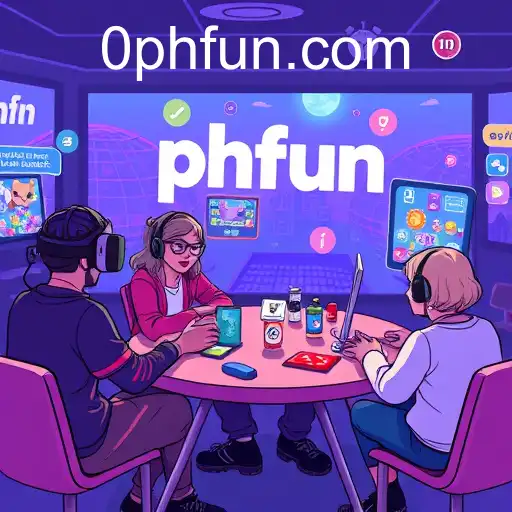Educational Games


The Rise of Educational Games: Engaging Minds through Play

In recent years, educational games have emerged as a powerful tool in modern learning strategies, blending entertainment with education to enhance student engagement and learning outcomes. Often identified by the keyword 'phfun,' these games harness the innate human love for play, turning it into a vehicle for cognitive development and knowledge acquisition. This article delves into how educational games are reshaping the landscape of education, making learning an interactive and enjoyable experience.
Educational games cover a broad range of subjects—from math and science to language arts and history—catering to students of various ages and learning styles. They are designed to challenge students' critical thinking, problem-solving, and decision-making skills in a fun and stimulating environment. By incorporating elements of gameplay, such as levels, rewards, and quests, these games motivate students to progress through educational content, often without the stress and pressure associated with traditional learning methods.
One of the remarkable aspects of educational games is their ability to provide immediate feedback. Unlike standard tests or homework, where students might have to wait days to understand their performance, educational games offer instant feedback, helping students to quickly identify areas of improvement and encouraging them to try different strategies to overcome challenges. This real-time feedback loop is crucial in reinforcing learning and building the confidence of learners.
The online accessibility of educational games means they are available to a global audience, breaking down geographical and economic barriers to quality education. Students from diverse backgrounds can access a plethora of resources and interactive content, allowing for a more personalized and engaging learning experience.
Further, educational games often include collaborative elements, enabling students to work together in virtual settings. This not only fosters cooperation and social skills but also reflects the collaborative nature of contemporary work environments, preparing students for future professional contexts.
Despite the abundance of educational games available, it is critical for educators and parents to select games that align with learning objectives and offer appropriate challenges for students. Game-based learning should complement traditional educational methods, ensuring that the fundamentals of the curriculum are met while taking advantage of the engaging nature of digital games.
As educational games continue to evolve with advances in technology, such as virtual and augmented reality, their potential to transform learning environments becomes ever more significant. By integrating educational games into educational curriculums, educators can create dynamic and engaging learning experiences that resonate with the digital-native generations, ensuring that education remains relevant and effective in the 21st century.
Gaming in 2025: The Rise of phfun
Explore the impact of phfun on the gaming industry in 2025, with insights into trends, community dynamics, and technological advancements.
The Rise of Digital Gaming in Modern Education
Exploring how digital gaming websites like Phfun are impacting education and learning dynamics in 2026.
The Rise of Online Gaming in 2025
Exploring the evolution and impact of online gaming in 2025, with a focus on platforms like phfun.
 Skip to content
Skip to content




